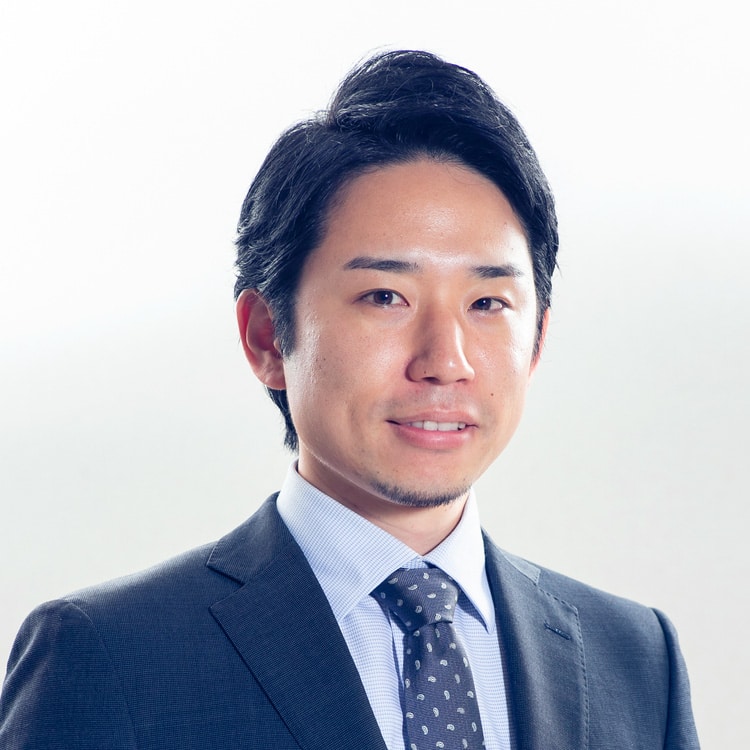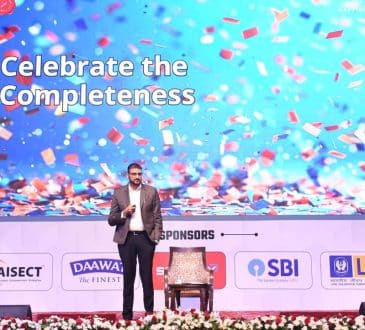Building an International Business: It Starts with the Right Team

Growing a global business is not for the faint of heart. Operating internationally puts under a microscope a CEO’s ability to develop a strategic vision, drive relentless execution, and, most importantly, build a stellar team. I’m not going to shock anyone by saying something like, “The foundation of any successful enterprise lies in its people.” But as it’s said, cliches become that way for a reason: they hold some modicum of human truth.
During my time leading CADDi, our greatest successes have all come on the other end of herculean efforts from our people. That was true when it was just three of us living together in a small apartment. It remains true now, with a team of over 600 across two continents. The cliche has contained far more than just a modicum of truth. So, lest you begin to think that all your many successes are entirely of your own doing, just remember assembling the right team is crucial to driving innovation, ensuring adaptability, and achieving sustained growth on a global scale.
That is not to say that attracting and developing great people is easy. If it was easy, everyone would do it. In this article, I’ll share insights from years of experience building and cultivating a high-performing team for international success.
Optimizing for Capacity Over Experience
When building an international business, it’s essential to prioritize capacity over experience. While experience can provide valuable insights and context, an individual’s capacity to rapidly acquire the new skills needed to meet their evolving challenges is what will drive innovation within your team. If you take nothing else away from this piece, remember this. It is not a probability that your team will encounter challenges they’re unprepared for—It is a certainty. Experience is good, but eventually, you will reach the edge of the map and will be operating in uncharted territory. Hire accordingly.
Hiring for capacity means looking beyond a candidate’s resume to assess their core skills, adaptability, and growth potential. This approach is particularly important in international business, where navigating diverse markets and cultures is crucial. For instance, candidates with strong analytical skills, a knack for creative problem-solving, and the ability to learn quickly will likely excel in new and challenging environments, even if they lack direct experience in the specific market or industry.
A team with diverse capabilities brings a wealth of perspectives, fostering creativity and innovation. When expanding internationally, this diversity becomes even more critical. Employees with different cultural backgrounds and experiences can provide unique insights into local markets, helping to tailor products and strategies to effectively meet regional demands.
Prioritizing capacity also forces you to commit to your team’s continuous development. If you’re not hiring explicitly for deep experience, you need to find ways to shorten learning curves. Training courses, coaching programs, cultivating a rich learning environment, and establishing a culture of risk-taking and psychological safety all are good approaches, so long as you fully commit. If you’re only paying lip service to developing the team while prioritizing capacity over experience, then you’re likely to do significant harm to the company. This investment in your team’s growth not only enhances their capabilities but also demonstrates your commitment to their professional development, boosting morale and retention.
The Importance of Problem-Solving Expertise
Problem-solving expertise is another critical component when building a team for international success. Identifying, analyzing, and solving problems quickly and effectively is invaluable in navigating the complexities of global markets (See above, “uncharted territory”). A problem-solving approach is one of the trickier things to evaluate because it forces the evaluator to find the line between challenging cross-examination and full-blown railroading. Only the very best managers I’ve worked with have been able to do this consistently.
At CADDi, we’ve approached this by putting candidates through practical interviews intended to put their problem-solving and decision-making on display. We make them domain-specific, so the candidate is operating in a sphere where they have some expected mastery, and our interviewers prepare questions meticulously to get underneath the candidate’s decision-making. Behavioral interviews focusing on past experiences and specific challenges the candidate has faced are also useful, but there’s no substitute for confronting someone with a new challenge in real-time. This approach offers you insight into how candidates approach and resolve real-world problems. Always look for individuals who demonstrate creativity, critical thinking, and a proactive approach to problem-solving.
Empowering employees to make decisions is crucial for fostering a culture of innovation and agility. In an international business, where time zones and geographic distances can create barriers, having team members who are confident and capable of making informed decisions is essential. This autonomy speeds up the decision-making process and encourages a sense of ownership and accountability among employees.
Encouraging collaboration and knowledge sharing across your teams enhances problem-solving capabilities. In an international context, this means leveraging technology and communication tools to facilitate collaboration across different locations and time zones. By fostering a culture where employees feel comfortable sharing ideas and seeking input from their colleagues, you can harness your team’s collective expertise to tackle complex challenges.
Building a Team Aligned with Organizational Goals and Values
The importance of aligning new hires with the organization’s goals and values cannot be overstated. This alignment goes beyond merely assessing technical competencies; it involves a deep understanding of the cultural and strategic fit of each candidate. Ensuring that team members resonate with the company’s core principles creates a cohesive and high-performing environment that is essential for navigating the complexities of global markets.
To attract and retain top talent who embody these values, a multi-layered hiring process is essential. This process should be rigorous and comprehensive, ensuring that only the best candidates move forward. The first step is to define clear hiring criteria that align with your organization’s mission, values, and strategic objectives. This should include both technical skills and cultural attributes such as adaptability, teamwork, and alignment with the company’s vision.
Cultural fit is particularly crucial in an international business context, where employees must navigate diverse cultural norms and practices. It’s about finding individuals whose values, work styles, and communication preferences align with the company’s culture. For example, at CADDi, we emphasize principles such as radical candor, extreme ownership, and exchanging autonomy for mastery that solicit these outcomes.
Radical candor involves providing honest, direct feedback that fosters transparency and continuous improvement. Hiring candidates who are comfortable with and can thrive in an environment where open communication is encouraged is vital. Extreme ownership, popularized by Jocko Willink and Leif Babin, ensures that team members take full responsibility for their roles and the overall success of the organization, promoting a culture of accountability and proactive problem-solving. Additionally, we believe in giving employees the autonomy to manage their work while continuously striving for excellence, a concept we term exchanging autonomy for mastery. This approach empowers individuals to take initiative and drive their professional development, aligning personal growth with organizational success.
Bringing these concepts into practice, we have seen firsthand the benefits of hiring individuals who align with our core principles. The hiring process itself should be continuously evaluated and refined. Gathering feedback from candidates and hiring managers allows for ongoing improvements, ensuring the process remains effective and aligned with the evolving needs of the organization.
As we navigate the complexities of international business, one truth stands paramount: success hinges on the caliber of your team. Beyond mere qualifications, the fusion of capability, problem-solving acumen, and cultural alignment propel organizations to new heights. Cultivating a team that embodies these traits requires a multi-faceted approach to hiring—one that prioritizes potential over pedigree and champions diversity of thought. By embracing these principles, we fortify our organizations against the uncertainties of a global marketplace and pave the way for transformative growth and innovation. Your team is more than a workforce; they are the architects of our global vision and the driving force behind enduring success.
Written by Yushiro Kato.
Have you read?
Countries Most in Debt to the International Monetary Fund (IMF).
Most Successful Unicorn Startups.
$100 Billion Club: Richest People With The 12-Figure Fortunes.
Largest electricity consumers in the world, by country (in terawatt-hours).
Countries that Export the Most Goods and Services.
Bring the best of the CEOWORLD magazine's global journalism to audiences in the United States and around the world. - Add CEOWORLD magazine to your Google News feed.
Follow CEOWORLD magazine headlines on: Google News, LinkedIn, Twitter, and Facebook.
Copyright 2025 The CEOWORLD magazine. All rights reserved. This material (and any extract from it) must not be copied, redistributed or placed on any website, without CEOWORLD magazine' prior written consent. For media queries, please contact: info@ceoworld.biz








